
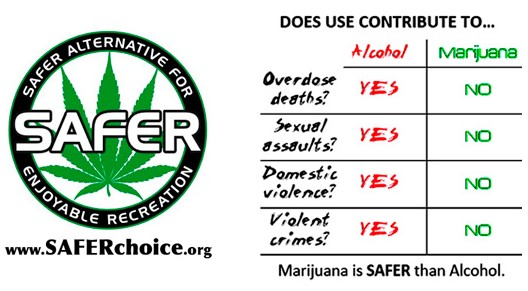
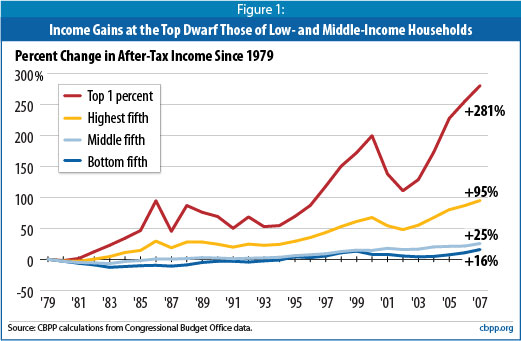
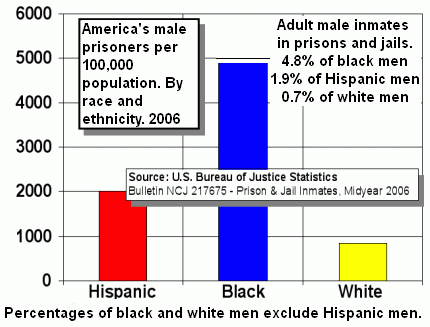
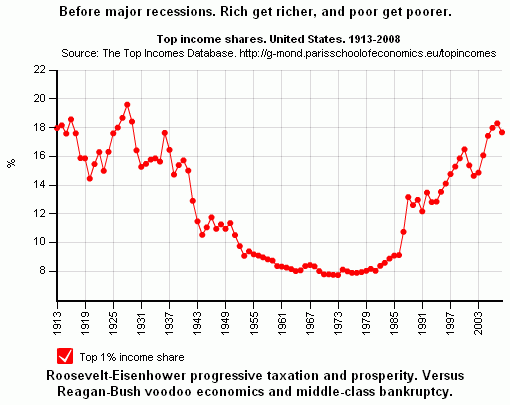
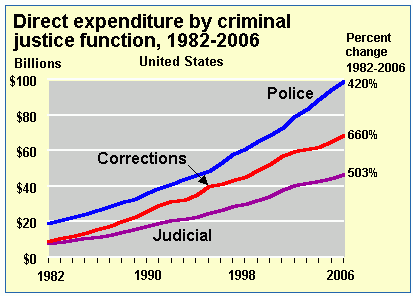
| Home. Contact. |
| See: Global Marijuana March. ~600 different cities since 1999. First Saturday in May. City lists: 1999 2000 1. 2. 3. 4. 5. 6. 7. 8. 9. 2010. 11 ...Search them. Add city name to search. |
| With less than 5% of world population the USA has over 2.4 million of 9.8 million world prisoners! The majority of U.S. inmates are in due to the drug war. |
| Most Republican leaders oppose cheap universal healthcare. 45,000 uninsured Americans die each year due to lack of health insurance. |
| March 9, 2001 Status Report On Probe Of Election Practices in Florida. U. S. Commission On Civil Rights (USCCR). "Voter disenfranchisement appears to be at the heart of the issue. It is not a question of a recount or even an accurate count, but more pointedly the issue is those whose exclusion from the right to vote amounted to a 'No Count.' " | |
| Mirrors 1. 2. | Change mirror pages if problems. |
*Introduction. *Report On Florida Election Practices. *State-by-state disenfranchisement. Chart. *Electoral systems worldwide. *Drug War charts, and more. |
      |
Introduction. [TopLink] |

March 9, 2001 Status Report On Probe Of Election Practices in Florida. U. S. Commission On Civil Rights (USCCR). [TopLink] |
· Key officials anticipated before Election Day, that there would be
an
increase in levels of voter turnout based upon new voter registration
figures,
but did not ensure that the precincts in all communities received
adequate
resources to meet their needs;
· At least one unauthorized law enforcement checkpoint was set up on
Election Day resulting in complaints that were investigated by the
Florida
Highway Patrol and the Florida Attorney General;
· Non-felons were removed from voter registration rolls based upon
unreliable information collected in connection with sweeping, state
sponsored
felony purge policies;
· Many African Americans did not cast ballots because they were
assigned to
polling sites that did not have adequate resources to confirm voting
eligibility
status;
· College students and others submitted voter registration
applications on a
timely basis to persons and agencies responsible for transmitting the
applications to the proper officials, but in many instances these
applications
were not processed in a timely or proper manner under the National
Voter
Registration Act (“motor-voter law”);
· Many Jewish and elderly voters received defective and complicated
ballots
that may have produced “overvotes” and “undervotes;”
· Some polling places were closed early and some polling places were
moved
without notice;
· Old and defective election equipment was found in poor precincts;
· Many Haitian Americans and Puerto Rican voters were not provided
language
assistance when required and requested;
· Persons with disabilities faced accessibility difficulties at
certain
polling sites;
· Too few poll workers were adequately trained and too few funds
were
committed to voter education activities;
The Commission’s probe proceeds under the statutory duty and authority
of
the Commission to investigate allegations in writing under oath or
affirmation
relating to deprivations … of the right of citizens of the United
States to
vote or have votes counted” (PL 103-419). This investigation is also
conducted
pursuant to our statute which requires the Commission to investigate
allegations
that “citizens of the United States are being deprived of their right
to vote
and have that vote counted by reason of their color, race, religion,
sex, age,
handicap, or national origin….”
In our investigation, we use as our standard the requirements of
Section 2 of
the Voting Rights Act for determining whether disparate impact or
disparate
treatment amounting to disenfranchisement has occurred. We understand
clearly
that violations of the Voting Rights Act do not require proof of
deliberate or
intentional discrimination against citizens, if differential results,
disenfranchising those who the statute was designed to protect are the
result.
Practices can be illegal when they have the effect of restricting
opportunities
for people of color, language minorities, persons with disabilities,
and the
elderly to participate fully in the political process and to elect
candidates of
their choice.
The Voting Rights Act of 1965, as amended, was aimed at subtle, as well
as
obvious, state regulations and practices that had the effect of denying
citizens
their right to vote because of their race. Perhaps the most invidious
barriers
to the right to vote were the seemingly neutral restrictions developed
by states
that had debilitating and devastating results on black voter
registration.
Congress has enacted additional measures to further protect the voting
rights
of persons of color, immigrants, the elderly, and those with
disabilities from
invidious discrimination. For example, an amendment to the Voting
Rights Act in
1975 permanently restricted the use of tests and devices for voter
registration
nationwide. The 1975 amendments also include rights for language
minorities,
mandating bilingual ballots and oral assistance with voting. In 1983,
the Voting
Rights Act was amended to clarify that the proof of discriminatory
intent is not
required under Section 2 claims, thus making disparate impact claims
valid.
Congress also enacted the National Voter Registration Act after finding
that “discriminatory
and unfair registration laws and procedures can have a direct and
damaging
effect on voter participation in elections for Federal office and
disproportionately harm voter participation by various groups,
including racial
minorities.” Further, several laws have been enacted pertaining to the
accessibility of the election process to persons with disabilities
[These laws are described in an appendix to this statement].
We are deeply troubled by our preliminary review which points to
differences
in resource allocations, including voting technology, and in voting
procedures
that may have operated so that protected groups may have had less of an
opportunity to have their votes counted. We will conduct complete
disparate
impact and treatment analyses before the report is completed, and our
final
conclusions will take into account the results of these analyses.
However, it appears at this phase of the investigation that the
evidence may
ultimately support findings of prohibited discrimination. Two
particular sources
of fruitful inquiry are the questionable uses of Choicepoint data and
resource
allocation issues. We are attempting to document whether and, if so,
how long
state, county and local officials knew that certain differences in
resources and
procedures might impact more harshly African Americans and members of
other
protected groups.
The staff is continuing their analysis of the voluminous testimonial
and
documentary evidence compiled during this investigation. Ultimately,
the
Commission will pinpoint whether each of the problems identified
resulted from
deliberate, or harmful, yet not deliberate, discrimination, or were
caused by
neither.
We emphasize that the implementation of voting technology reforms and
uniform
and accurate standards for counting and recounting ballots would be
encouraging
and significant. These measures standing alone, however, will not
address the
significant and distressing issues and barriers that prevented
qualified voters
from participating in the Presidential election.
In the final analysis, new recounts of old ballots are an academic
exercise.
Voting is the language of our democracy and regrettably, when it
mattered most,
real people lost real opportunities to speak truth to power in the
ballot box.
This must never occur again. As Dr. Martin Luther King, Jr. once
stated: Social
justice shall not roll in on wheels of inevitability.
It is our hope that Florida officials, as well as officials in other
jurisdictions- where barriers existed, will promptly resolve these
major
problems that occurred on their watch.
-------------------------------------------
APPENDIX
The most important sections of the Voting Rights Act are Section 2 and
Section 5.
Section 2 of the Voting Rights Act provides:
No voting qualification or prerequisite to voting, or standard
practice, or
procedure shall be imposed or applied by any State or political
subdivision to
deny or abridge the right of any citizen of the United States to vote
on account
of race or color.
Section 5 of the Voting Rights Act outlines the federal role in
election
oversight by requiring federal approval of state changes in voting
procedures in
areas with a history of discrimination against persons of color.
Section 5 is
designed to prevent new forms of discrimination from taking effect that
will
diminish voting opportunities or rights for people of color. It also
permits the
Federal Government to send examiners to covered jurisdictions to ensure
that
registered voters are allowed to vote and that all votes are properly
counted.
The Voting Rights Act has been amended since its passage to broaden its
coverage and to strengthen its effectiveness. In 1975, an amendment
permanently
restricted the use of tests and devices for voter registration
nationwide. The
1975 amendments also include rights for language minorities, mandating
bilingual
ballots and oral assistance with voting. In 1983 the Voting Rights Act
was
amended to clarify that the proof of discriminatory intent is not
required under
Section 2 claims, thus making disparate impact claims valid.
Also, in an effort to further protect the voting rights of all
citizens,
particularly members of protected groups, including persons of color,
immigrants, the elderly, and those with disabilities, Congress enacted
the
National Voter Registration Act:
§ to establish procedures that will increase the number of eligible
citizens
who register to vote in elections for Federal office;
§ to make it possible for Federal, State and local government to
implement
this Act in a manner that enhances the participation of eligible
citizens as
voters in elections for Federal office;
§ to protect the integrity of the electoral process; and
§ to ensure that accurate and current voter registration rolls are
maintained.
Lastly, several laws have been enacted pertaining to the accessibility
of the
election process to persons with disabilities:
· Section 208 of the Voting Rights Act of 1965 provides that a
person of his
or her choice, with the exception of his or her employer or union
agent, may
assist any voter who requires assistance due to blindness, disability,
or
illiteracy
· Section 504 of the Rehabilitation Act of 1973 requires recipients
of
federal funds to make their programs accessible to persons with
disabilities,
including state and local governments that receive funding.
· The Voter Accessibility Act for Elderly and Handicapped Persons of
1984
expressly provides for the improvement of access to registration
facilities and
polling places. The law requires that state election divisions assure
that all
polling places are accessible to the elderly and persons with
disabilities or
that arrangements are made for such voters to vote in accessible
locations or
permanent registration facilities unless the state allows for
registration by
mail. Finally, the law requires that states provide registration and
voting
aids, such as large print instructions and telecommunication devices
for the
deaf (TDD’s).
· Title II of the Americans with Disabilities Act of 1990 prohibits
discrimination by state or local entities in any services, programs, or
activities, including the election process, for which state and local
offices
are required to ensure accessibility.
The National Voter Registration Act of 1993, except in a handful of
exempted
states, requires that individuals be given the opportunity to register
by mail
or when applying for a driver’s license or public services. This
specifically
includes state-funded programs that provide services to individuals
with
disabilities.
---------------------------------------------
Page #flstrpt1 March 9, 2001
--- end of report from U. S. Commission On Civil Rights website
----
------------------------------------------
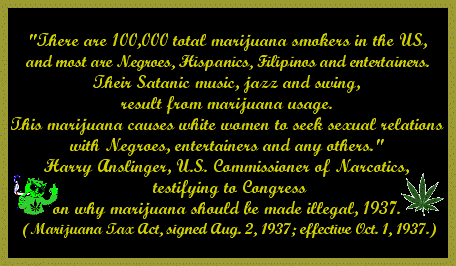
-------------------------------------------
State-by-state disenfranchisement. CHART. [TopLink] |
"In 1998, a study by Human Rights Watch and the Sentencing Project found that 13 percent of African American men and nearly four million Americans had lost the right to vote due to felony convictions." State-by-state disenfranchisement by category. Adapted from chart in 1998 study. ["ExFelons" used in chart instead of "Ex-Felons" in order to avoid word-wrap problems (from using -dashes- in chart rows) when chart is placed into some message boards and list archives.] |
_____________________________________________ State_by_state_disenfranchisement_by_category _____________________________________________ State_____Prison_Probation_Parole__Exfelons__ _____________________________________________ ~~~~~~~~~~~~~~~~~~~~~~~~~~~~~~~~~~~~~~~~~~~~~ Alabama________X_______X_______X_______X_____ Alaska_________X_______X_______X_____________ Arizona________X_______X_______X_______X_____ __________________________________2nd_felony_ Arkansas_______X_______X_______X_____________ California_____X_______________X_____________ Colorado_______X_______________X_____________ Connecticut____X_______X_______X_____________ Delaware_______X_______X_______X_______X_____ District_of__________________________________ __Columbia_____X_____________________________ Florida________X_______X_______X_______X_____ Georgia________X_______X_______X_____________ Hawaii_________X_____________________________ Idaho__________X_____________________________ _____________________________________________ State_____Prison_Probation_Parole__Exfelons__ _____________________________________________ Illinois_______X_____________________________ Indiana________X_____________________________ Iowa___________X_______X_______X_______X_____ Kansas_________X_____________________________ Kentucky_______X_______X_______X_______X_____ Louisiana______X_____________________________ Maine________________________________________ Maryland_______X_______X_______X_______X_____ __________________________________2nd_felony_ Massachusetts________________________________ Michigan_______X_____________________________ Minnesota______X_______X_______X_____________ Mississippi____X_______X_______X_______X_____ Missouri_______X_______X_______X_____________ Montana________X_____________________________ _____________________________________________ State_____Prison_Probation_Parole__Exfelons__ _____________________________________________ Nebraska_______X_______X_______X_____________ Nevada_________X_______X_______X_______X_____ New_Hampshire__X_____________________________ New_Jersey_____X_______X_______X_____________ New_Mexico_____X_______X_______X_______X_____ New_York_______X_______________X_____________ North_Carolina_X_______X_______X_____________ North_Dakota___X_____________________________ Ohio___________X_____________________________ Oklahoma_______X_______X_______X_____________ Oregon_________X_____________________________ Pennsylvania___X_____________________________ Rhode_Island___X_______X_______X_____________ South_Carolina_X_______X_______X_____________ South_Dakota___X_____________________________ _____________________________________________ State_____Prison_Probation_Parole__Exfelons__ _____________________________________________ Tennessee______X_______X_______X_______X_____ ____________________________________pre1986__ Texas__________X_______X_______X_______X_____ ___________________________________2_years___ Utah_________________________________________ Vermont______________________________________ Virginia_______X_______X_______X_______X_____ Washington_____X_______X_______X_______X_____ ____________________________________pre1984__ West_Virginia__X_______X_______X_____________ Wisconsin______X_______X_______X_____________ _____________________________________________ ~~~~~~~~~~~~~~~~~~~~~~~~~~~~~~~~~~~~~~~~~~~~~ State_____Prison_Probation_Parole__Exfelons__ _____________________________________________ The_Courier_New_font_lines_up_the_columns.___ |
Electoral systems worldwide, and drug reform. [TopLink] |
Drug War charts, and more. [TopLink] |